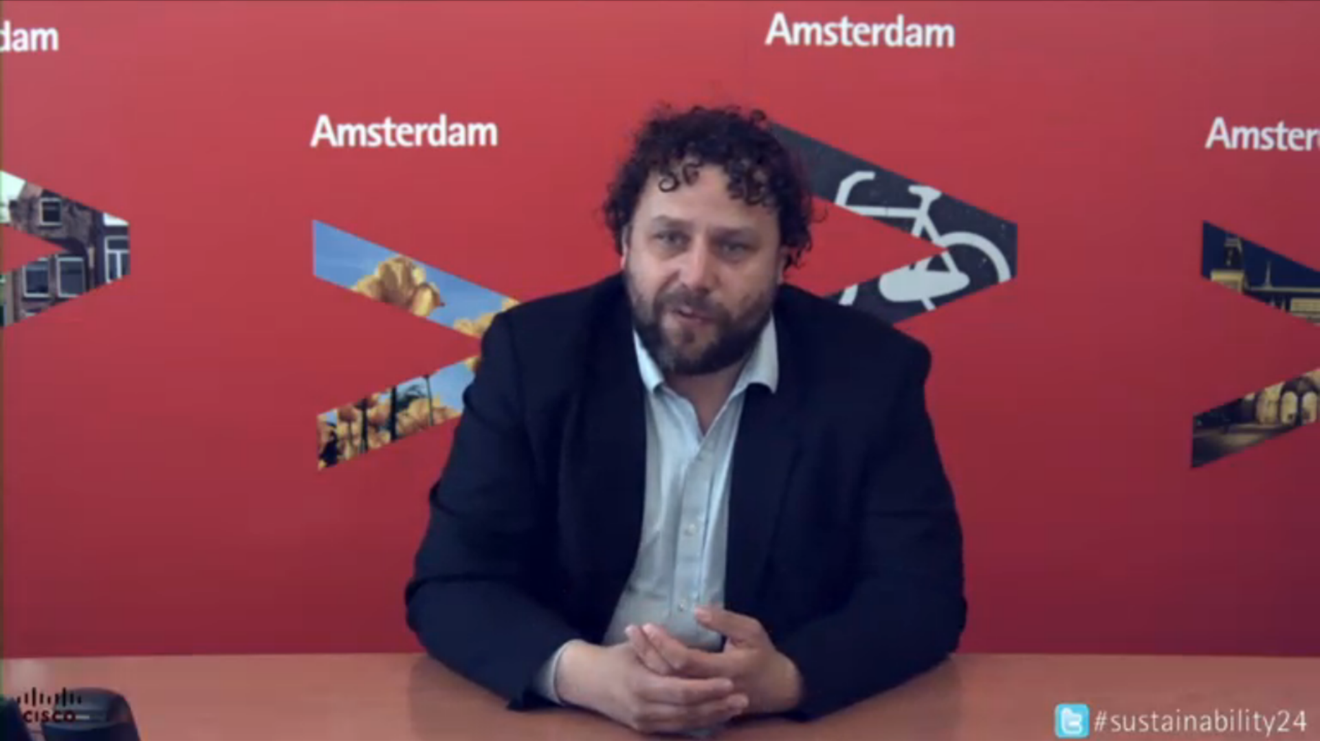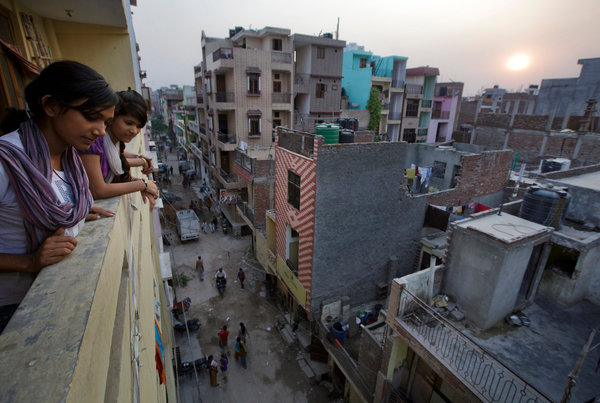 As a result of being part of the Accenture Alumni network, I was invited to a fascinating event this week at the firm’s swanky city offices in London.
As a result of being part of the Accenture Alumni network, I was invited to a fascinating event this week at the firm’s swanky city offices in London.
The agenda for the Breakfast Briefing was ‘Sustainability24’ and this turned out to be a 24 hour global event over 10 countries across six continents simultaneously broadcast over the internet.
Accenture had set out to explore every facet of the sustainability agenda by engaging in debate with its brightest brains alongside clients, journalists, social commentators, academics and of course invited guests and Alumni like myself.
As an example of ‘thought leadership in action’ it was an extremely impressive effort. And being Accenture, the platform for the debate was very clear: driving sustainability and economic growth and how technology can help make this happen.
Obviously, this would take more than 24 hours to explain but thankfully this has been packaged into bite size chunks so you can sign up for free and view the bits that interest you most.
Sitting in Accenture I felt like I’d become a time traveller whisked at warp speed between London, Singapore and Amsterdam and back again. I was getting pretty dizzy and didn’t over indulge in the bacon rolls and orange juice that was in plentiful supply!
Apart from the predictable server problems that turned some of the speakers on the screen into ‘Androids’ (ha ha!) as the picture froze mid-sentence although they continued to speak, I thought the event was a fantastic success.
 The day started with a discussion on the future of “Smart Cities” or to be more accurate, “Smarter Cities” as the concept of an actual “Smart City” is still work-in-progress.
The day started with a discussion on the future of “Smart Cities” or to be more accurate, “Smarter Cities” as the concept of an actual “Smart City” is still work-in-progress.
The relationship between a “Smarter City” and sustainability is overwhelming.
By 2037, half the world’s population will live in cities in “emerging markets” according to current estimates. For example, up until 2050, six of the 25 fastest growing major cities in the world will be in India, with seven in China and not a single one in the so-called developed world. And while Kinshasa is set to be the fastest growing city from 2015 to 2020, New Delhi is set to overtake it in 2020-2025.
This seismic shift in the balance of people moving out of the rural and into the urban environment promises to deliver huge economic gains for the newly urbanising countries.
Some experts believe that a 5% increase in urbanisation leads to 10% in per capita economic activity with a particular “sweet spot” for countries with an urbanisation rate of 30-50%.
Despite the excitement that such headlines create, early on in the discussion it was clear that the concept of a “Smart City” had in fact got off to the wrong start.
Instead of human design leading the change in the way we like to live, work and play and the concept of the “Smart City” being built from this perspective, it was technologists that had driven the thinking on what a “Smart City” was all about.
Technology wasn’t the change. It was an enabler of change. That was something I’d learnt when I was with the firm over 20 years’ ago. Yet there was this disconnect between technology and human behaviour that needed to be re-wired, so to speak.
An international conference in Singapore had just been looking at how the concept of a “Smart City” could revolutionise the way in which society could be transformed as well as driving a new era of growth for business and social entrepreneurs.
With such a compelling vision of the future, what were the road blocks to creating a “Smarter City” of tomorrow? Well, quite a few judging from the analysis presented and probably far too much detail to cover in one blog.
 What grabbed my attention were the observations made by Ger Baron, Chief Technology Officer (CTO) of the City of Amsterdam. The city has a small population of just over 1m and was one of the first places in the world to have every household broadband enabled whilst the rest of Europe was still struggling with 56K dial up. And the fact that Ger was a CTO of a city was an interesting concept in its own right!
What grabbed my attention were the observations made by Ger Baron, Chief Technology Officer (CTO) of the City of Amsterdam. The city has a small population of just over 1m and was one of the first places in the world to have every household broadband enabled whilst the rest of Europe was still struggling with 56K dial up. And the fact that Ger was a CTO of a city was an interesting concept in its own right!
“Most cities don’t have social design” explained Ger. “Collaboration and alliances are important and yet cities aren’t really good at organising and creating the conditions where this happens.”
What Ger and the other experts agreed on was that for the “Smarter City” concept to succeed, power needed to be devolved from central Government and put into the hands of the Mayor responsible for running the city.
It started to sound like the re-election manifesto for Boris Johnson!
If sustainability was to be hard wired into the “Smarter City” concept, then the Mayor needed to have the power to make the necessary changes required in order to achieve the productivity and economic gains that could be delivered as a result.
 The debate covered other topics such sharing best practice between “Smarter Cities” so that economic gains could be accelerated, but we’re a long way off from this happening on a regular basis.
The debate covered other topics such sharing best practice between “Smarter Cities” so that economic gains could be accelerated, but we’re a long way off from this happening on a regular basis.
Where the “Smarter City” concept looks like taking off is in the developing world where the errors and mistakes made in the developed world can be avoided.
And perhaps that’s a prize worth having given the fragile state of our planet, where by the middle of this century the global urban population will almost double from approximately four billion to over eight billion people in 2050.














Recent Comments